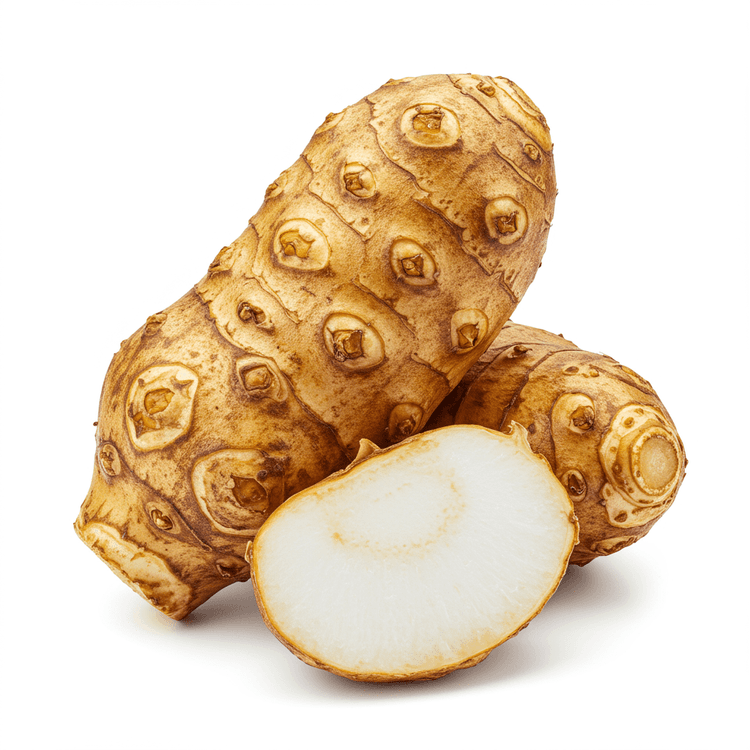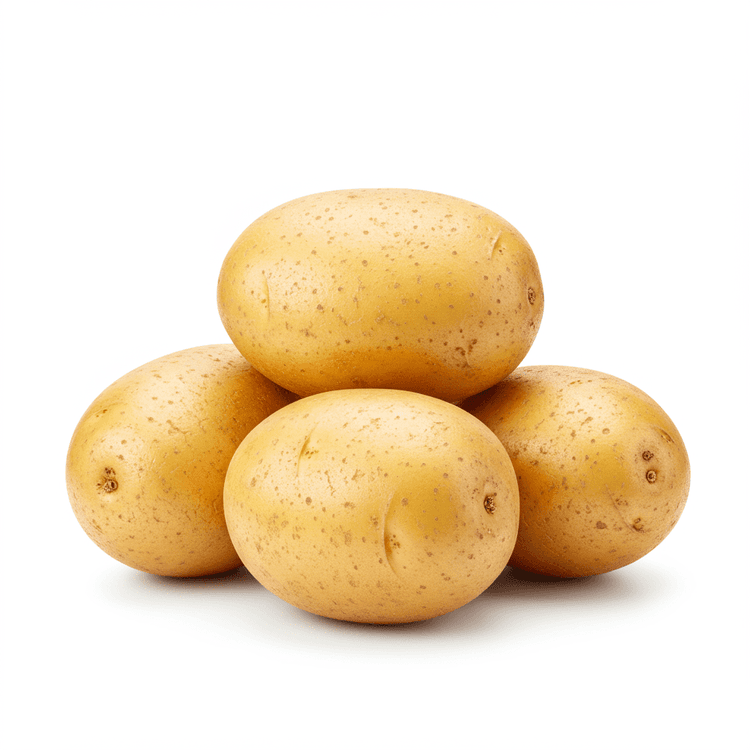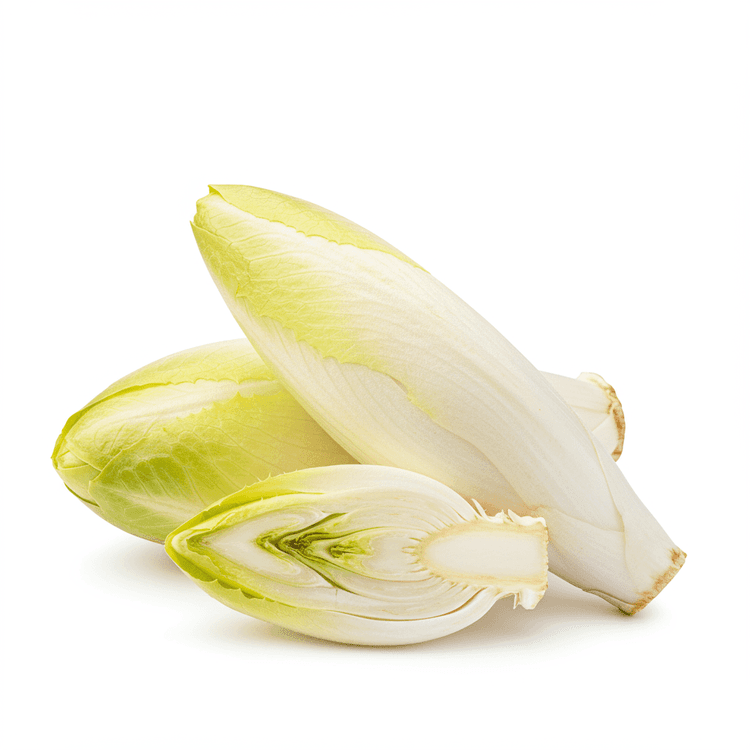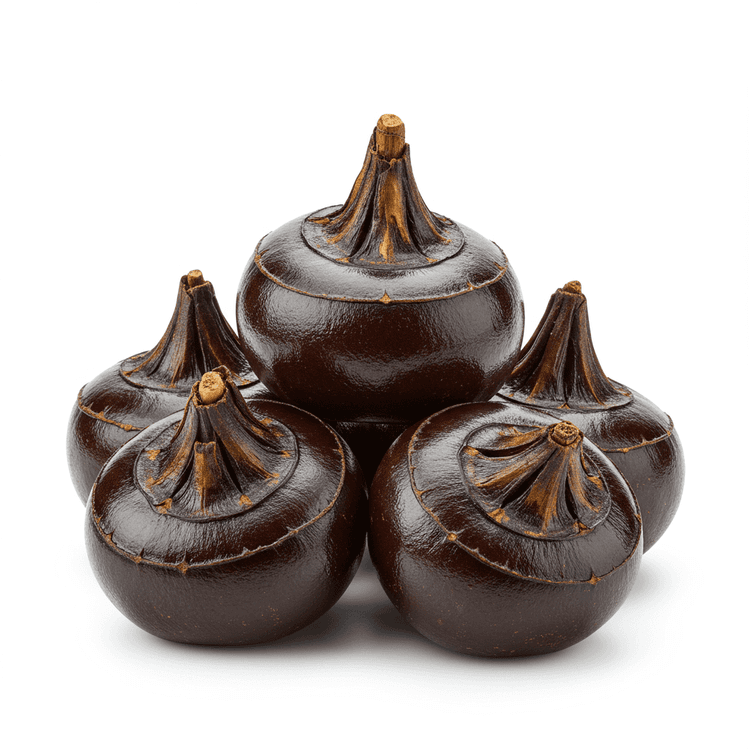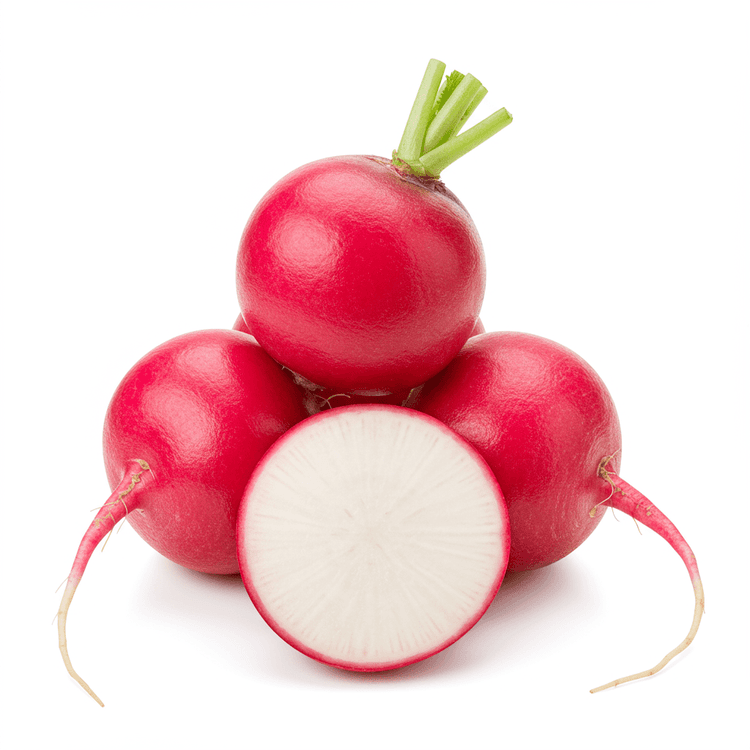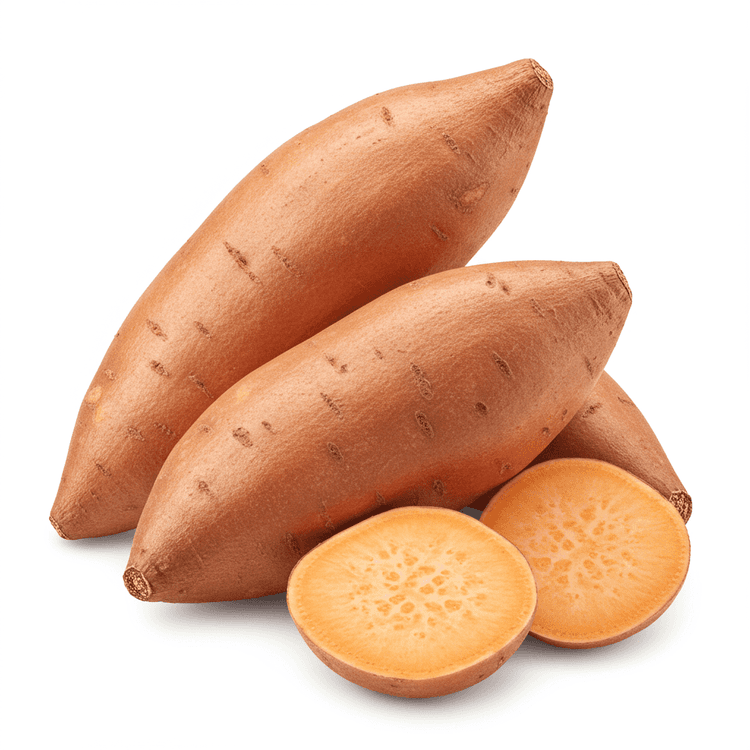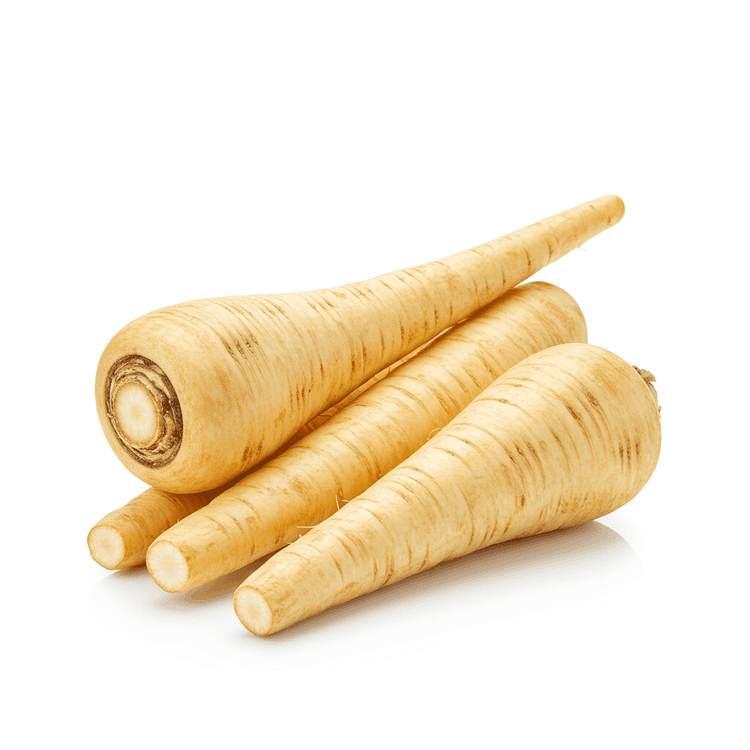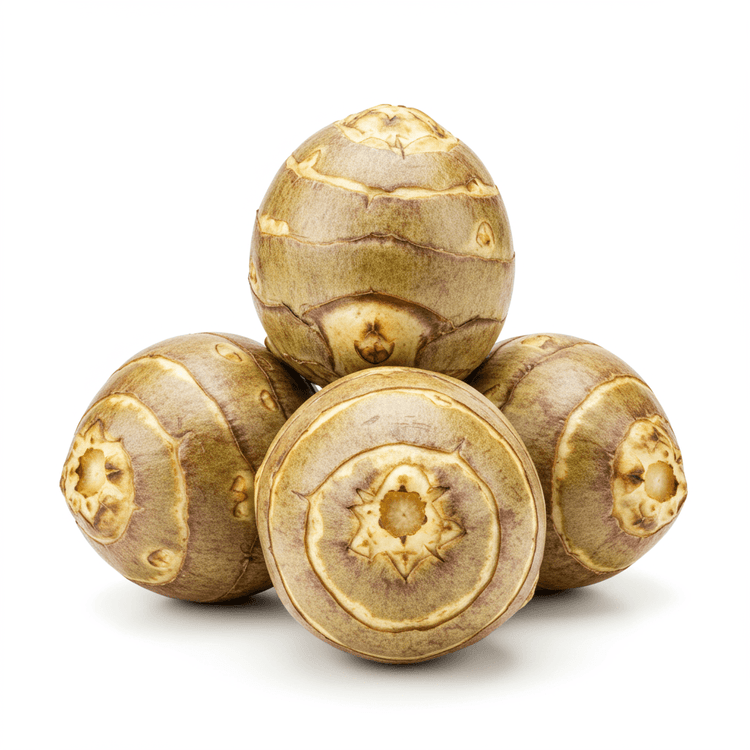
Jerusalem Artichoke
Jerusalem artichoke, also known as sunchoke, is a knobby, tuberous root vegetable with a nutty, slightly sweet flavor reminiscent of a cross between potatoes and artichokes. Its texture is crisp and crunchy when raw, similar to water chestnuts, but becomes tender and creamy when cooked. The skin is thin and ranges from light brown to reddish-purple, while the flesh is white and starchy. This versatile ingredient is prized for its earthy taste and ability to complement a wide range of dishes, making it a favorite among chefs and home cooks alike.
Common Uses
- Slice raw Jerusalem artichokes thinly and add them to salads for a crunchy, nutty flavor.
- Roast Jerusalem artichokes with olive oil, garlic, and herbs to bring out their natural sweetness and create a caramelized exterior.
- Blend cooked Jerusalem artichokes into soups or purees for a creamy, earthy base that pairs well with other root vegetables.
- Use Jerusalem artichokes as a low-carb alternative to potatoes in gratins, mashes, or stir-fries.
- Pickle Jerusalem artichokes to preserve their crisp texture and tangy flavor, perfect for snacking or as a garnish.
- Incorporate Jerusalem artichokes into risottos or pasta dishes for added depth and a unique twist on traditional recipes.
Nutrition (per serving)
Nutrition (per serving)
Calories
73.0kcal (3.65%)
Protein
2.0g (4%)
Carbs
17.4g (6.34%)
Sugars
9.6g (19.2%)
Healthy Fat
0.0g
Unhealthy Fat
0.0g
% Daily Value based on a 2000 calorie diet
Nutrition (per serving)
Calories
73.0kcal (3.65%)
Protein
2.0g (4%)
Carbs
17.4g (6.34%)
Sugars
9.6g (19.2%)
Healthy Fat
0.0g
Unhealthy Fat
0.0g
% Daily Value based on a 2000 calorie diet
Health Benefits
- Rich in inulin, a prebiotic fiber that supports gut health and improves digestion.
- Low glycemic index, making it a great choice for managing blood sugar levels.
- High in potassium, which helps regulate blood pressure and supports heart health.
- Contains antioxidants like vitamin C, boosting immunity and reducing inflammation.
- A good source of iron, aiding in energy production and preventing anemia.
- Supports weight management due to its fiber content, promoting satiety and reducing overeating.
Chefadora AI is here.
Experience smarter, stress-free cooking.
Storage Tips
Jerusalem artichokes should be stored in a cool, dark place, such as a pantry or cellar, for short-term storage. For longer shelf life, keep them in the refrigerator in a perforated plastic bag or wrapped in a damp paper towel to maintain moisture. Avoid washing them until ready to use, as excess moisture can lead to spoilage. If freezing, blanch them first to preserve texture and flavor before storing in airtight containers.
Marnirni-apinthi Building, Lot Fourteen,
North Terrace, Adelaide, South Australia, 5000
Australia
